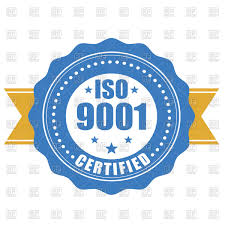Quality is what everybody needs, Quality is what everybody demands!
Every business owner running a business online or offline aims to deliver what is in demand and quality is an evergrowing demand where no one wants to compromise over its traits.
ISO (Indian Organization for Standardization) standards are accepted worldwide where many companies apply the Quality Management System, and its principles to fulfill the aim of attaining satisfactory response from users.
Let me make you familiar with the ISO 9001 Quality Frameworks and the advantages a good QMS provides to the marketers and business owners.
ISO 9001 Quality Mangement Benefits
ISO is recognized internationally and a QMS is recommended to apply as it works in accordance with the ISO set quality standards but at the same time, you do have a chance to be certified by an independent party as well.
On practical grounds, implementing a certified ISO 9001 Quality Management System into your business has the following major benefits to serve you with:
- Once applied, it acts as a proof that your enterprise flags ‘Quality’ on top and have made several checks on regular basis dispensing quality products and services. This objective proof further increases the level of confidence within a business’s environment.
- It enhances the efficiency of business operations and activities. Making QMS an integral part of your organization helps deliver sound results to the end-user with the improved operating efficiency and gives you an upper edge over others.
- Quality management is a basic need which allows you to make continuous improvements in your deliverables, thus upgrading the quality of your products and services. This, in turn, motivates your employees as well as personnel to deliver the best from their end.
- With a QMS that is certified as per the ISO 9001 standards, your company ensures to run the workflow procedures with a clear understanding and smooth communication. As there is staff involvement, it improves the working environment and lowers down the work pressure.ơ
- Whether it’s a good time or a bad one, Quality Management Solutions help you make quick decisions by getting transparent insights from real-time data results to better the current situation and avoid to make future mistakes.
- A good quality managing tool keeps your customers and their satisfaction at forefront clearing it for all (your employees, staff, clients, partners, and suppliers) that making the customers happy is the organizations all time moto.
- When you spread that you are ‘Quality’ certified and dispense quality in all that you have to sell, it automatically starts building a good reputation in the market, thereby raising your brand image and gradually exceeding it over your competitor’s popularity.
Quality Frameworks that support Quality Management
The below mentioned are those concepts which truly support a business to move forward complying effectively to the quality management principles. Take a rundown:
- Lean
It centers its focus on maximizing value by minimizing the waste. Waste is something the adds cost to a product while ignoring to add value to the same. This is something to be eliminated at the earliest.
The Lean concept was derived way back in the 1990s with a goal to improve business processes by removing waste in order to enhance business efficiencies.
It adheres to the principle of ‘reduction of seven wastes’ to draw great user experiences along with customer contentment.
2. Six Sigma
Six Sigma makes effective use of statistical data and outputs to make better the internal processes involved in the working of a company.
The phenomenon doesn’t define QMS but is used in multiple organizations to provide a sheer support to a quality management system.
Six Sigma tools made their advent in the 1980s to improve the level of processes in the context of quality, eliminating all the chances of producing defects in the deliverables.
- TQM
Total Quality Management (TQM) involves all those practices which ultimately helps a business to raise the performance standards.
The problem-solving techniques which this concept offers are used merely to aid quality management but do not provide a framework for a QMS.
The TQM concept was supplanted by ISO 9001 which was originated in the 1980s with an aim to provide the best and in turn get the best by providing quality attributes in products, features, services, and everything that is to be served.
This brings me to end up the documentation covering all the essential profits an ISO 9001 QMS unveils to make a business go green, accelerating its revenue gains and fixing its prolonged existence in the marketplace.

